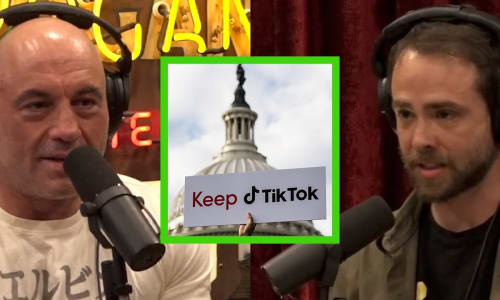See all PowerfulJRE transcripts on Youtube

Minds Founder Bill Ottman on "Sneaky" TikTok Ban
14 minutes 54 seconds
🇬🇧 English
Summaries Topics Transcript Chapters Titles Socials Twitter Blog Post Newsletter Quotes Quizzes Ask ChatGPT

Omnivision Solutions Ltd
- Getting Started
- Create Transcript
- Pricing
- FAQs
- Recent Transcriptions
- Roadmap